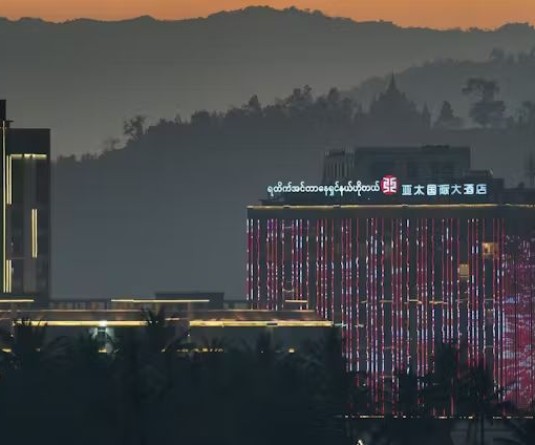
Surhozo Khamo: Don’t send drunkards, drugs addict, thieves etc. to Bible Colleges anymore, they are creating lots of problems. It will be better if you sent them to PRAYER CENTERS.
Imnet Mangyang: This is Nagaland. God wants us to give Him the best! But here in Nagaland, we tend to give the worst! Drunkard, drugs addicts, sickly, brainless etc.! I guess I am talking my thoughts too loudly but it’s true. No offence to anyone though.
James Chellappa: From my last 13 years in the field of theology as a student as well as a lecturer, I have witnessed many drug addicts, drunkards, and fools come to Bible college. The majority get transformed, become effective witnesses of the Gospel of Christ.
It is shameful to criticize the young people who have committed to enter the Bible college. May be many such hopeless persons were sent to Bible colleges by parents who have lost all hope. But good Bible colleges have the formula to make the rejected charcoal into invaluable ""diamonds""
Vebuyi Thingo: In the book of genesis, God refused Cain's sacrifice because he failed to offer his best but God accepted Abel's because Abel brought his best to God. So, I think we should give our best youths to God if we want the best.
Vikeduo Linyü: I have even visited theological college in the outskirt of Bangalore without electricity but you can do your M.th if you are class 10 pass out. There are theological colleges in Bangalore respected globally where highly qualified Nagas have passed out but 70% of the colleges are bogus. I see the bogus trend coming up in dimapur. Lots of theological colleges mushrooming. Infact i heard some applicants to a theological college advertisement in dimapur were really piss when the ad mentioned swimming pool facility available whereas in reality it was a fishery pond.
Solumba Aso: I think going to the bible college or theological institution should be based on individual commitment and conviction not on the basis of parent’s commitment or any other things.
Sorry state of Nagaland’s healthcare system
Kathy Jamir: If reports are to be believed, Nagaland has only seven eye specialists and nine gynaecologists. Moreover, due to the inability of the State Government to provide regular employment, bulk of the MBBS doctors prefer to move out to serve in other states. Now, in order to tackle the shortage of medical doctors, the government is encouraging practitioners of traditional medicines to provide healthcare to th...e people by including them in the National Rural Health Mission(NRHM) under the AYUSH system. We all know the effectiveness of traditional healers and their medicines and this is a good effort on the part of the government. However, I feel that our government is neglecting healthcare as a whole. We do not have a single medical college. Thankfully, every year, new batches of MBBS students are being sent to different parts of the country through central quota. And they come back after completion of their degree only to find themselves going back again, except for a few.
I may sound like another disgruntled citizen but we are losing valuable human resource. Also,our hospitals are not equipped enough to take care of serious cases so for the unlucky patients and their family,its a sorry trip to Guwahati or Delhi or any other destination for that matter. If health is preferable to wealth,don't we need better hospitals and healthcare facilities?( I got this information from The Hindu article published on March 7,2012.)
Longri Kichu: The NRHM includes AYUSH practitioners in order to tackle the shortages of health personnel in rural areas. I have seen AYUSH doctors substituting allopathic doctors in some states and practicing Allopathic medicine. I have serious doubts about an AYUSH doctor prescribing allopathic medicine leaving aside his own field (Which he is intended to in the original plan). While the numbers might be filled, quality will be compromised. It will be very disheartening for a young doctor to work in a rural area without any infrastructure or without any scope for learning. A friend after doing his MD was posted in a rural area and all he could do was prescribe paracetamol and some common antibiotics. It took ten years for him to learn the highest skill in medicine. He quit after 3 months. It is the duty of the administration to bring the infrastructure in place first, pay package is secondary.
Lanu Jamir: My father is a surgeon, passed out from AIIMS way back in the 70's. He has contemporieries in different specialities and most of them are private practitioners.
I am an HIV consultant and a private practitioner. I remember giving my NPSC, getting through to the Interviews but being held back because I was not a 'recommended' candidate.
Nepotism is rife and does not end at recommendation; it rears its ugly head throughout one's career, jeopardizing placement, promotion, transfer etc.
I know of anesthesiologists, surgeons and other specialists being posted in the backwaters of Nagaland, without any infrastructure including basic housing, to utilize their learned skills. (I've heard of OT's being taken over as cow sheds, no housing for the posted MOs)
Nagaland does not suffer from a lack of expert practitioners, but rather a lacuna in the infrastructure and governance to harness these talents. Recent news had been that the Govt. of Nagaland were employing Kobirajes and dais as full time medical employees. If the Government is actually dedicated to the health of the society, the citizens should have access to proper doctors, instead of half baked quacks, whose wellbeing are also kept in mind.






